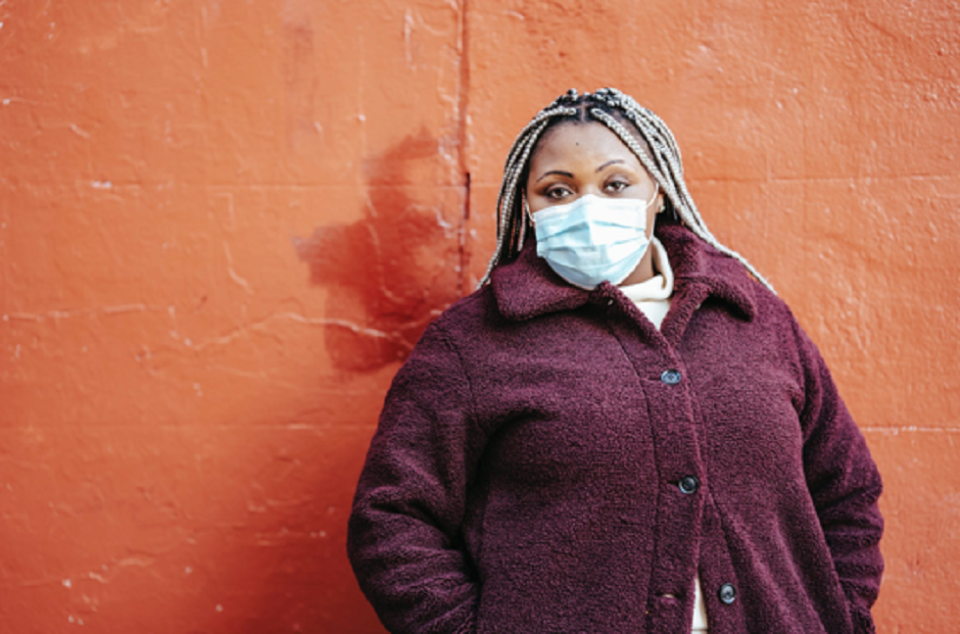No one was expecting the devastation that COVID-19 brought onto the world. In this day of technology, science, and modern medicine, the thought of a virus taking over the entire world with all the great minds of science was just incomprehensible to most of us. But, COVID proved us wrong. This pandemic swept through so violently and so rapidly the only priority was stopping it. The fight continues.
The Battle In Canada
In Canada there have been 965,400 cases of COVID-19 reported, resulting in 22,890 deaths according to a report published in the New York Times. While those numbers are heartbreaking, they put the United States to shame. The United States has had 31,021,897 cases of COVID-19 and to date, 563,000 people have lost their lives to this killer virus. At this point, we all know the instructions that experts have given us to avoid catching and spreading the virus. The general instructions are:
- Get a COVID-19 vaccine when it’s available to you.
- Wear a mask to protect yourself and others and stop the spread of COVID-19.
- Stay at least 6 feet (about 2 arm lengths) from others who don’t live with you.
- Avoid crowds and poorly ventilated spaces. The more people you are in contact with, the more likely you are to be exposed to COVID-19.
- Clean your hands often, either with soap and water for 20 seconds or a hand sanitizer that contains at least 60% alcohol.
- Avoid close contact with people who are sick.
- Cover your cough or sneeze with a tissue, then throw the tissue in the trash.
- Clean and disinfect frequently touched objects and surfaces daily.
- Monitor your health daily.
(Source: CDC)
Prevention
All of the points above tell us ways we can stop the spread of COVID. We also use common sense and do our best to take care of ourselves. We shower daily using antibacterial soap. We use a tissue when we reach for a doorknob. We wear paper masks so we can throw them away and if we use cloth masks, we wash them after we wear them.
We are careful to eat healthy food. When we buy fresh fruit and vegetables, we carefully soak and wash them. Antibacterial wipes are always with us to wipe off handles, tables, chairs, and stools. Is this enough? Not quite.

Obesity
Obesity is a killer. Obesity is not the cause of heart disease but combined with heart disease it can kill you. Obesity does not cause gallbladder disease, stroke, or osteoarthritis, but it worsens and causes severe side effects in each of them.
COVID-19 & Obesity
It was not obvious in the beginning. When the virus first began flooding the hospitals in the state of Vermont in the United States, medical staff later explained that it seemed the flu had hit the area. People were coming in with flu-like symptoms and fever. Then the trouble breathing began. Sometimes they struggled so badly, they were placed on ventilators. They seldom pulled through. Of the patients that had immediate breathing problems, the one thing they had in common with the other patients sick with the “mystery flu” was excess weight. Each of them was seriously overweight.
Months later, the CDC published a report. People coming down with the COVID-19 virus were 113% more likely to be admitted to the hospital if they were obese, due to the strain the virus and the obesity put on the lungs, and 74% more likely to die.
Diabetes, Covid-19, & Obesity
While obesity affects a lot of illnesses (as listed above) the combination of these three is important enough to specifically point out. Just as obesity has a serious effect on someone with the virus due to the additional strain placed on compromised lungs, it has a devastating effect on a person with diabetes.
Diabetes is a disease that can be controlled but has no cure. The CDC describes diabetes as “A chronic health condition that affects how your body turns food into energy. Most of the food you eat is broken down into sugar (also called glucose) and released into your bloodstream.” When your blood sugar goes up, it signals your pancreas to release insulin. The fatter a person is, the more insulin they need. A diabetic has problems pumping blood throughout the body because of poor circulation. Fat also clogs the veins. This can cause nerve damage and organ damage.
COVID-19 makes you weak and run a fever. You feel that you need to rest. Your diabetes needs you to move. Resting requires less insulin. This is a catch 22. The worse you feel, the harder it is to breathe. The harder it is to breathe, the less you want to move. You must keep yourself healthy and if begin to feel sick, contact your doctor right away.

Staying ahead of the game
When it comes to diabetes, you have to keep up. It can get tempting to let things slide from time to time. It is not fun dealing with an illness that is part of every moment of every day of your life. That is never a good idea.
It is not just about how you feel. You are checking your blood glucose because that is your compass. This tells you how your body is functioning. How your blood glucose is being controlled directly affects how your blood circulation is. It is making sure your kidneys, heart, brain, and bladder are getting what they need. You are ensuring your own health.
You must test your blood often with a quality blood glucose meter. Get your meter, Contour sugar strips, and lancets from a trusted source like Ascensia Diabetic Care. They have been in the business of caring for diabetics even before meters were available to the public. Their website is a wealth of information to help you stay informed.
Of course, for weight control and to build your body to be strong to resist viral attacks you want to eat a healthy diet. Your doctor will instruct you on the proper diet to follow if you have any medical conditions, but it is safe to say no diet should contain sugar and high-fat foods.
When dealing with both of these illnesses, you need to work activity into your life. That is not easy if you are on lockdown. Even if it means exercising indoors or popping in a DVD and dancing for 20 minutes per day. You have to move. Keep your sleeping routine as regular as possible and fight depression by letting the sunshine in the rooms as much as possible.
Make sure you take vitamins to keep your immune system healthy. They should include a proper amount of zinc, iron, and vitamins A, B 12, B6, C, and E. For a suggested list of foods that you should eat daily (with your doctor’s permission) click here.
As you can see, obesity is tied to a lot of health issues and it is a major factor in the recovery of a person who comes down with COVID-19. Great progress is being made toward the control of this virus and we all hope to see it cured very soon. But until that day comes, every step we can take to protect ourselves is worth the effort. So, talk with your doctor about your eating plan and nutrition. Make sure you are strong and healthy. Prepare today so you can be well tomorrow. You’re worth it.
